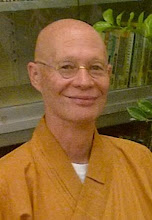
In the past few years Western countries have had a thirst for pure bottled H20 - Water. You only have to take a casual stroll through any supermarket in Australia and behold whole aisles dedicated to the life giving liquid. Evian, Perrier, Fratelle, Home Brand (not sure if this one comes straight out of the tap at home!?) and on it goes. If you are like me having lived in Brisbane Australia you would certainly be drawn to the more “pure” waters as our city water supply tastes like something coming out of a chemical laboratory with its chlorine and fluoride additives.
I wonder if all of this has something to do with our unconscious search for something more pure in our lives, untouched by additives, ‘faddatives’, non-fat reduced and non-polluted. If you haven’t had an information holiday yet I suggest you try one for a few days. Get away from the TV, radio, computer, emails etc and just see how fresh you mind feels. It’s amazing. People seem to be searching for something more meaningful and deeper.
Another pure product, Pure Land Buddhism is still little known in the West due mainly to the paucity of literature for beginners in English. Pureland had its origins in China when it was founded by the Patriarch Hui Yuan in 402. It recognizes that in these times Nirvana is very difficult to attain. However, through faith in Amitabha Buddha and the concentrated recitation of his name we are able to attain rebirth in the Pure Land.
It is not just a “place” in the future after our completion of this life-time, it is also a state of mind. All external phenomena are a result of mind. The practise of Pure Land purifies the mind of all impurities and enables us to live more contented and fulfilling lives. The interesting thing about Pure Land practice is that results are very noticeable within a short time of concentrated and sincere practice. Pure Land Buddhism does not require any complicated rituals and is easy to practice any time anywhere. It is very portable (or should I say potable) and contains no additives or ‘fadditives’.
If you are interested in Pure Land Buddhism I can recommended a couple of good resources:
In One Life Time, Pure Land Buddhism by Venerable Wuling. It is freely downloadable in the Ven Wuling’s Blog at http://www.abuddhistperspective.org
Pure-Land Zen, Zen Pure-Land by the 13th Patriarch of Pure Land Yin Kuang. A free download is available at www.buddhanet.net/pdf_file/yin_kuang.pdf
For a general, easy to read, user-friendly introduction to Buddhism and Pure Land I recommend The Teaching of the Buddha (Available in English and Chinese). It is available free on our website www.taishendo.com





